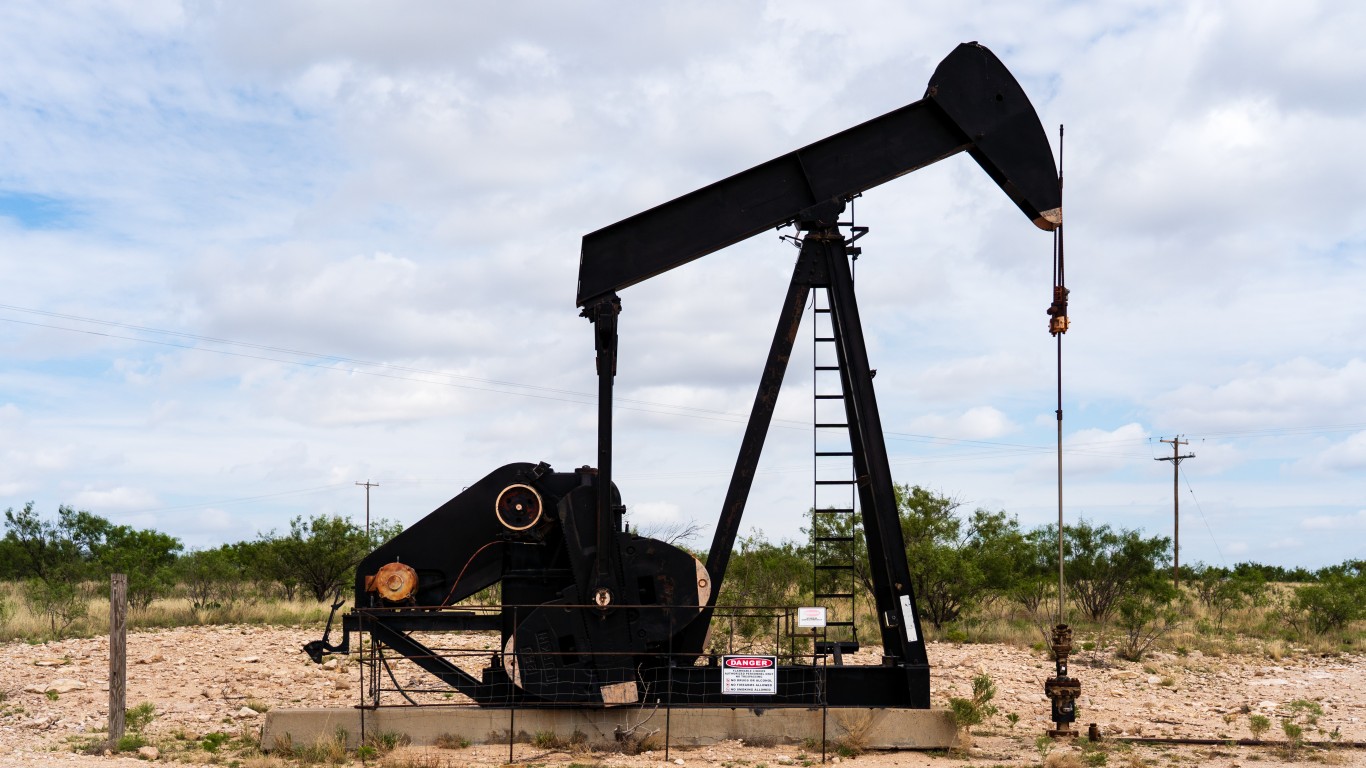
Before markets opened on Monday, independent oil and gas producer Diamondback Energy Inc. (NASDAQ: FANG) announced that it had reached a definitive deal to acquire QEP Resources Inc. (NYSE: QEP) in an all-stock transaction valued at $2.2 billion, including QEP’s debt of $1.6 billion. QEP shareholders will receive 0.05 shares of Diamondback stock for each share of QEP stock they own, implying a value of $2.29 per QEP share, roughly equal to Friday’s closing price of $2.31 for QEP.
[in-text-ad]
Investors in both companies reacted negatively to the deal, with shares of both stocks trading lower in Monday’s premarket session. QEP investors receive essentially no premium to its closing price on Friday, and Diamondback investors are dubious about the deal’s potential to increase their returns.
After bottoming out at less than $15 a share in mid-March, Diamondback shares had tripled to more than $45 as of Friday’s close. That’s still more than 50% lower than their year-to-date high of more than $96.
QEP shares dropped below $0.30 a share in March and have since recovered to around $2.30, also less than half their year-to-date high of around $4.80.
In its comments on the acquisition, Diamondback said that the acquisition would be accretive to “all relevant 2021 share metrics” before accounting for $60 to $80 million in synergies. The deal adds 49,000 net QEP acres in the Permian’s Midland basin and average daily oil production based on third-quarter results of 30.5 million barrels a day.
QEP’s assets in the Bakken’s Williston Basin will be considered “non-core” and will be used to harvest cash flow or be sold. Proceeds from any sale will be used to pay down debt. In addition to the $1.6 billion in debt being taken on from QEP, Diamondback’s net debt totaled nearly $5.3 billion at the end of the third quarter.
Travis Stice, Diamondback’s chief executive officer, focused on his company’s expected capital allocation for next year. He noted that it will not change from prior expectations:
[W]e are expecting to hold pro forma fourth quarter 2020 oil production flat through 2021 in the most capital efficient manner possible, which has improved with today’s announcements. Our differentiated cost structure, combined with the addition of this top quartile resource, will allow Diamondback to consistently generate free cash flow and grow our return of capital program to our stockholders.
Diamondback investors currently receive an annual dividend of $1.50 (yielding 3.17%) and QEP shareholders receive an annual dividend of $0.08 (yield of 3.46%). It is fair to say that neither company’s investors see any upside to this transaction. Diamondback’s debt load is increasing by around 30% and, if the company can find a buyer, the sale of QEP’s Bakken assets is targeted to reducing that debt and not being returned to shareholders.
When Devon Energy acquired WPX in September, we noted that Diamondback was one of five independent producers that could be seeking an acquisition. This one is clearly not the one investors were hoping for.
QEP’s shares traded down more than 7% in Monday’s premarket, at $2.15 in a 52-week range of $0.26 to $4.80.
Diamondback’s stock fared little better, trading down more than 6% to $43.00, in a 52-week range of $14.55 to $96.92. The consensus 12-month price target on the stock is $57.14.
100 Million Americans Are Missing This Crucial Retirement Tool
The thought of burdening your family with a financial disaster is most Americans’ nightmare. However, recent studies show that over 100 million Americans still don’t have proper life insurance in the event they pass away.
Life insurance can bring peace of mind – ensuring your loved ones are safeguarded against unforeseen expenses and debts. With premiums often lower than expected and a variety of plans tailored to different life stages and health conditions, securing a policy is more accessible than ever.
A quick, no-obligation quote can provide valuable insight into what’s available and what might best suit your family’s needs. Life insurance is a simple step you can take today to help secure peace of mind for your loved ones tomorrow.
Click here to learn how to get a quote in just a few minutes.
Thank you for reading! Have some feedback for us?
Contact the 24/7 Wall St. editorial team.
 24/7 Wall St.
24/7 Wall St.



